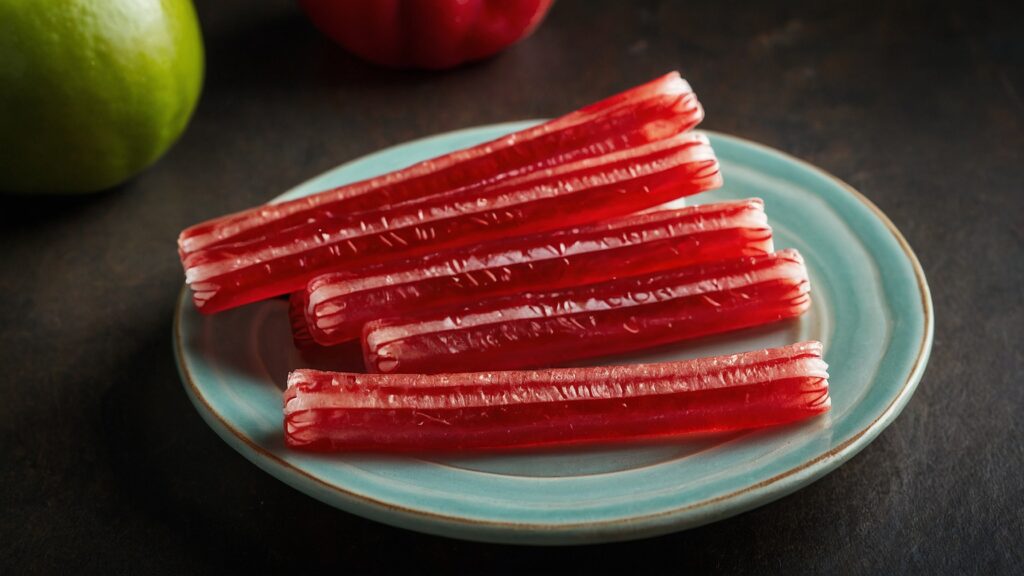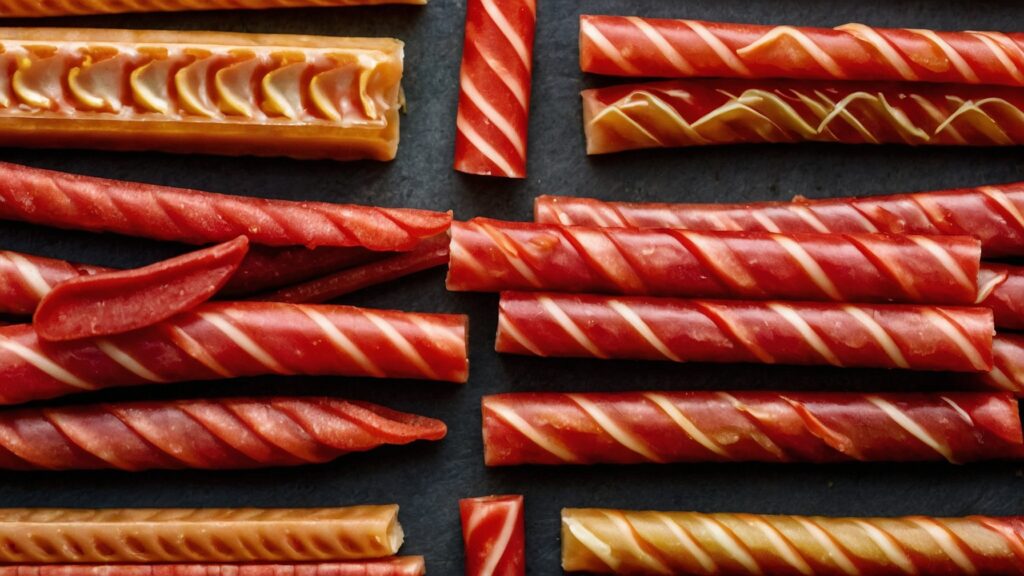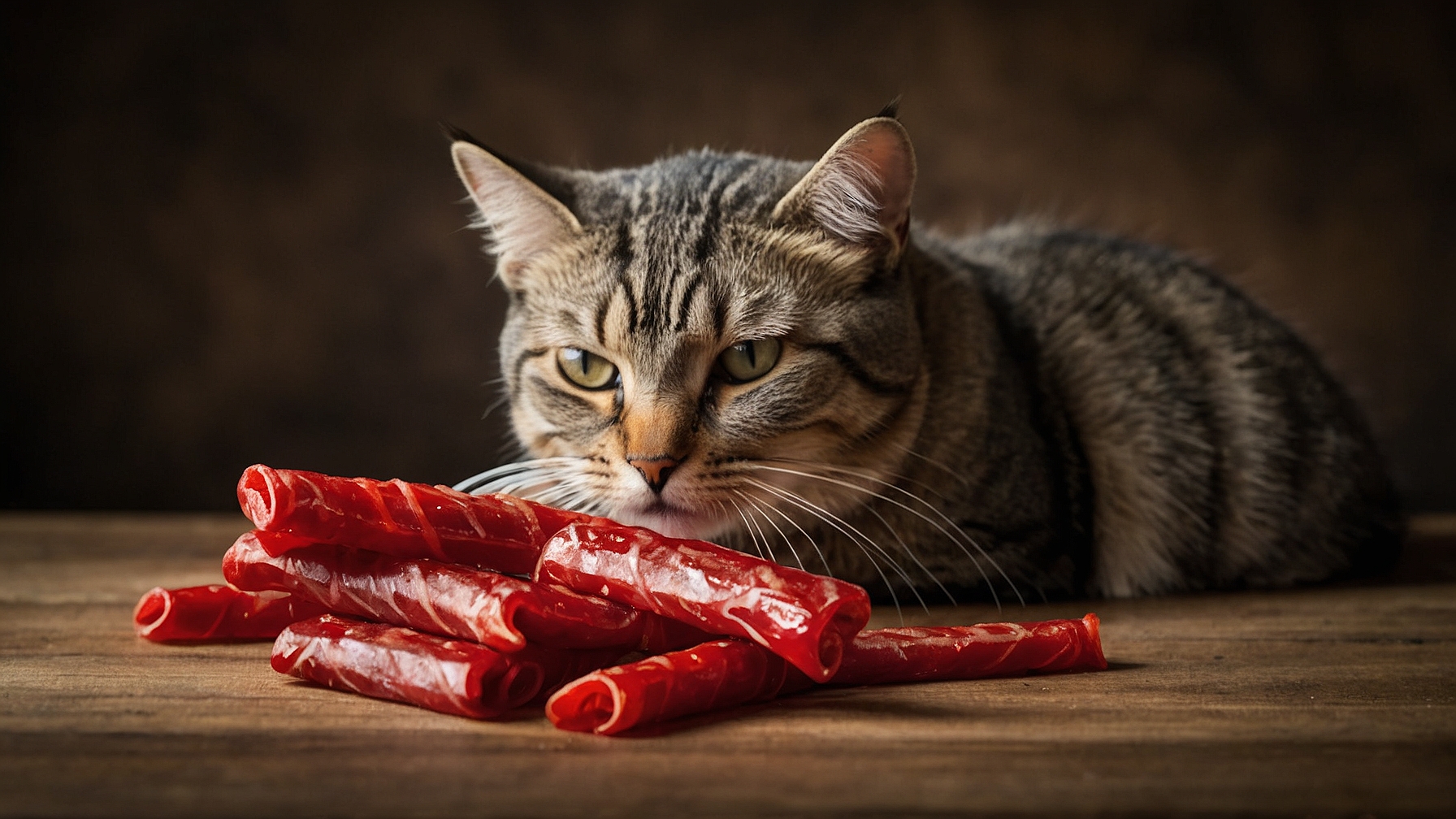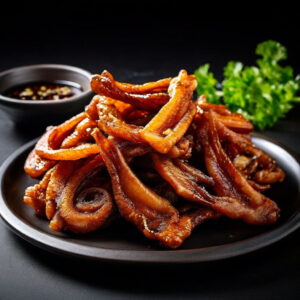If you’re a cat owner who loves indulging in the chewy, fruity goodness of Twizzlers, you might have wondered if it’s safe to share these treats with your feline friend. After all, cats are known for their curious and sometimes mischievous nature, and it’s not uncommon for them to beg for a taste of whatever their human companions are enjoying. However, before you succumb to those big, pleading eyes, it’s crucial to understand the potential risks of feeding Twizzlers to your feline companion.
In this comprehensive guide, we’ll dive deep into the question, “Can cats eat Twizzlers?” We’ll explore the ingredients in these popular licorice twists, evaluate their safety for our feline friends, and discuss the potential risks and side effects associated with feeding Twizzlers to cats. Additionally, we’ll provide valuable insights into healthy snack alternatives and offer guidance on what to do if your cat accidentally ingests these tempting treats.
So, sit back, relax, and let’s unravel the truth about whether cats can safely enjoy the chewy deliciousness of Twizzlers.
Table of Contents
Understanding Twizzlers and Their Ingredients

Before we delve into the safety aspect of feeding Twizzlers to cats, it’s essential to understand what these treats are made of. Twizzlers are a type of chewy, licorice-flavored candy that has been a beloved snack for generations. They are manufactured by The Hershey Company and are widely available in various flavors, including strawberry, cherry, and even chocolate.
The primary ingredients in Twizzlers include:
- Enriched Wheat Flour: This is the main ingredient that provides the chewy texture.
- Sugar: Twizzlers contain a significant amount of sugar, contributing to their sweet flavor.
- Corn Syrup: Another sweetener added to enhance the overall taste.
- Artificial Flavors and Colors: These are used to create the distinctive licorice flavor and vibrant red color.
- Preservatives: Twizzlers contain preservatives to extend their shelf life.
While these ingredients may seem harmless to humans, they can pose potential risks to our feline friends. Cats have different dietary requirements and metabolisms compared to humans, which means that certain ingredients found in Twizzlers may not be suitable for their consumption.
Can Cats Eat Twizzlers? Are Twizzlers Safe for Cats to Eat?
The short and straightforward answer is no, Twizzlers are not safe for cats to consume. In fact, it is generally recommended that cat owners avoid feeding any human snacks or candies to their feline companions, as they can potentially cause harm.
There are several reasons why Twizzlers are not considered a safe treat for cats:
- High Sugar Content: Cats are obligate carnivores, meaning their bodies are designed to digest and thrive on a diet primarily consisting of animal-based proteins. Twizzlers, on the other hand, are loaded with sugar, which can lead to various health issues in cats, such as obesity, diabetes, and dental problems.
- Artificial Ingredients: The artificial flavors, colors, and preservatives found in Twizzlers are not natural components of a feline diet. These substances can be difficult for cats to digest and may potentially cause adverse reactions or toxicity.
- Lack of Nutritional Value: Twizzlers offer no nutritional value to cats. They are essentially empty calories, providing no essential nutrients that contribute to a balanced feline diet.
- Potential for Gastrointestinal Issues: The high sugar content and artificial ingredients in Twizzlers can upset a cat’s delicate digestive system, leading to vomiting, diarrhea, and other gastrointestinal problems.
While it may be tempting to share these chewy treats with your feline friend, it’s important to resist the urge and prioritize your cat’s health and well-being. Providing a balanced, species-appropriate diet is crucial for maintaining your cat’s overall health and happiness.
Risks and Side Effects of Feeding Twizzlers to Cats
While an occasional lick or nibble of a Twizzler may not cause immediate harm to your cat, regularly feeding these treats can lead to various health issues. Let’s explore some of the potential risks and side effects associated with feeding Twizzlers to cats.
Digestive Problems
As mentioned earlier, the high sugar content and artificial ingredients found in Twizzlers can wreak havoc on a cat’s digestive system. Cats have a different digestive process compared to humans, and their bodies are not designed to handle large amounts of sugar and artificial additives.
Potential digestive issues that may arise from consuming Twizzlers include:
- Vomiting: The cat’s body may attempt to expel the undigested Twizzlers, leading to vomiting episodes.
- Diarrhea: The sugars and artificial ingredients can irritate the cat’s sensitive digestive tract, causing diarrhea.
- Upset Stomach: Cats may experience discomfort, bloating, and general gastrointestinal distress after ingesting Twizzlers.
Choking Hazards
The chewy and stringy texture of Twizzlers can pose a choking hazard, especially for curious kittens or cats who tend to gulp down their treats without properly chewing. If a large chunk of a Twizzler becomes lodged in your cat’s throat, it could potentially cause a life-threatening obstruction.
Dental Issues
The sticky, sugary nature of Twizzlers can contribute to dental problems in cats. The sugar can adhere to their teeth, promoting the growth of harmful bacteria and potentially leading to tooth decay, gum disease, and other oral health issues.
Weight Gain and Obesity
Twizzlers are high in calories and offer no nutritional value, making them a contributing factor to weight gain and obesity in cats. Obesity can lead to a range of health problems, including diabetes, joint issues, and respiratory difficulties, among others.
Diabetes and Other Health Complications
The high sugar content in Twizzlers can increase the risk of developing diabetes in cats, especially if consumed regularly. Diabetes can be a serious condition that requires lifelong management and can lead to other complications if left untreated.
Additionally, the artificial ingredients and preservatives found in Twizzlers may have long-term effects on your cat’s overall health, potentially contributing to various chronic conditions or allergic reactions.
Given these potential risks and side effects, it’s clear that feeding Twizzlers to cats should be avoided at all costs. Your feline friend’s health and well-being should always be prioritized over indulging in human treats that offer no nutritional value.
What to Do If Your Cat Accidentally Eats Twizzlers

Despite your best efforts to keep Twizzlers out of reach, accidents can happen, and your cat may manage to sneak a few bites of these tempting treats. If this occurs, it’s essential to take the following steps:
- Remove the Twizzlers: Immediately take away any remaining Twizzlers from your cat’s reach to prevent further consumption.
- Observe for Symptoms: Monitor your cat closely for any signs of digestive distress, such as vomiting, diarrhea, or lethargy. If you notice any concerning symptoms, contact your veterinarian immediately.
- Contact Your Veterinarian: Even if your cat seems fine after consuming a small amount of Twizzlers, it’s always best to consult with your veterinarian. They can provide professional guidance and recommend any necessary actions, such as inducing vomiting or administering medication to alleviate potential side effects.
- Provide Fresh Water: Ensure that your cat has access to plenty of fresh, clean water to help flush out any remaining Twizzlers from their system.
- Avoid Panic: While it’s essential to take the situation seriously, try not to panic. Overreacting can stress your cat and potentially worsen any existing discomfort.
Remember, prevention is always better than cure. It’s crucial to keep Twizzlers and other human snacks securely stored and out of reach from your curious feline companion. By taking proactive measures and being vigilant, you can help ensure your cat’s safety and well-being.
Healthy Snack Alternatives for Cats
Instead of feeding your cat Twizzlers or other human snacks, it’s best to provide them with safe, feline-friendly treats that offer nutritional value and are specifically designed for their dietary needs. Here are some healthy snack alternatives you can consider:
- Commercial Cat Treats: Look for high-quality, grain-free cat treats made with real meat as the primary ingredient. These treats are formulated to provide essential nutrients while satisfying your cat’s cravings.
- Cooked Lean Meat: Small pieces of cooked, unseasoned chicken, turkey, or fish can make for a delicious and protein-rich treat for your feline friend.
- Catnip: Dried or fresh catnip can be a fun and stimulating treat for cats, providing them with a natural source of enjoyment.
- Freeze-Dried Meat or Fish: Freeze-dried meat or fish treats are a convenient and nutritious option, offering a crunchy texture that cats often enjoy.
- Homemade Treats: If you’re feeling adventurous, you can try making your own homemade treats using cat-friendly ingredients like cooked meat, pumpkin, and low-sodium broth.
When introducing any new treats to your cat’s diet, it’s important to do so in moderation and to consult with your veterinarian, especially if your cat has any specific dietary requirements or health conditions. Remember, treats should never make up more than 10% of your cat’s daily caloric intake.
Frequently Asked Questions (FAQ)
Can cats eat other types of licorice or chewy candies?
No, it’s generally not recommended to feed any licorice or chewy candies to cats. These treats often contain high amounts of sugar, artificial flavors, and preservatives that can be harmful to your feline friend’s health. Stick to cat-safe treats specifically designed for their dietary needs.
Is it okay to give my cat a tiny piece of Twizzlers as a treat?
While a small lick or nibble may not cause immediate harm, it’s best to avoid giving your cat any Twizzlers at all. Even a tiny amount can potentially lead to digestive issues or other health problems, especially if consumed regularly.
What should I do if my cat keeps begging for Twizzlers?
If your cat persistently begs for Twizzlers or other human snacks, it’s important to remain firm and resist the temptation to give in. Instead, redirect their attention to appropriate cat treats or toys. Consistently rewarding begging behavior with human food can reinforce the behavior and lead to potential health issues.
Are there any situations where Twizzlers might be safe for cats?
No, there are no situations where Twizzlers can be considered a safe treat for cats. Their high sugar content, artificial ingredients, and lack of nutritional value make them unsuitable for feline consumption, regardless of the circumstances.
Conclusion
In conclusion, while Twizzlers may be a delightful treat for humans, they are not safe for our feline friends to consume. The high sugar content, artificial ingredients, and lack of nutritional value in these chewy licorice twists can pose significant risks to your cat’s health, including digestive problems, dental issues, weight gain, and even diabetes.
As responsible pet owners, it’s crucial to prioritize our cats’ well-being and provide them with a balanced, species-appropriate diet. Instead of sharing human snacks like Twizzlers, consider offering your feline companion healthy, cat-safe treats that are specifically formulated to meet their dietary needs.
Remember, a little bit of indulgence for us can be a significant health risk for our feline companions. By making informed choices and being vigilant about what we feed our cats, we can ensure their happiness, health, and longevity.
So, the next time you’re tempted to share your Twizzlers with your furry friend, remember this comprehensive guide and opt for a safer, more nutritious alternative. Your cat will thank you for prioritizing their well-being over a fleeting moment of shared snacking bliss.




